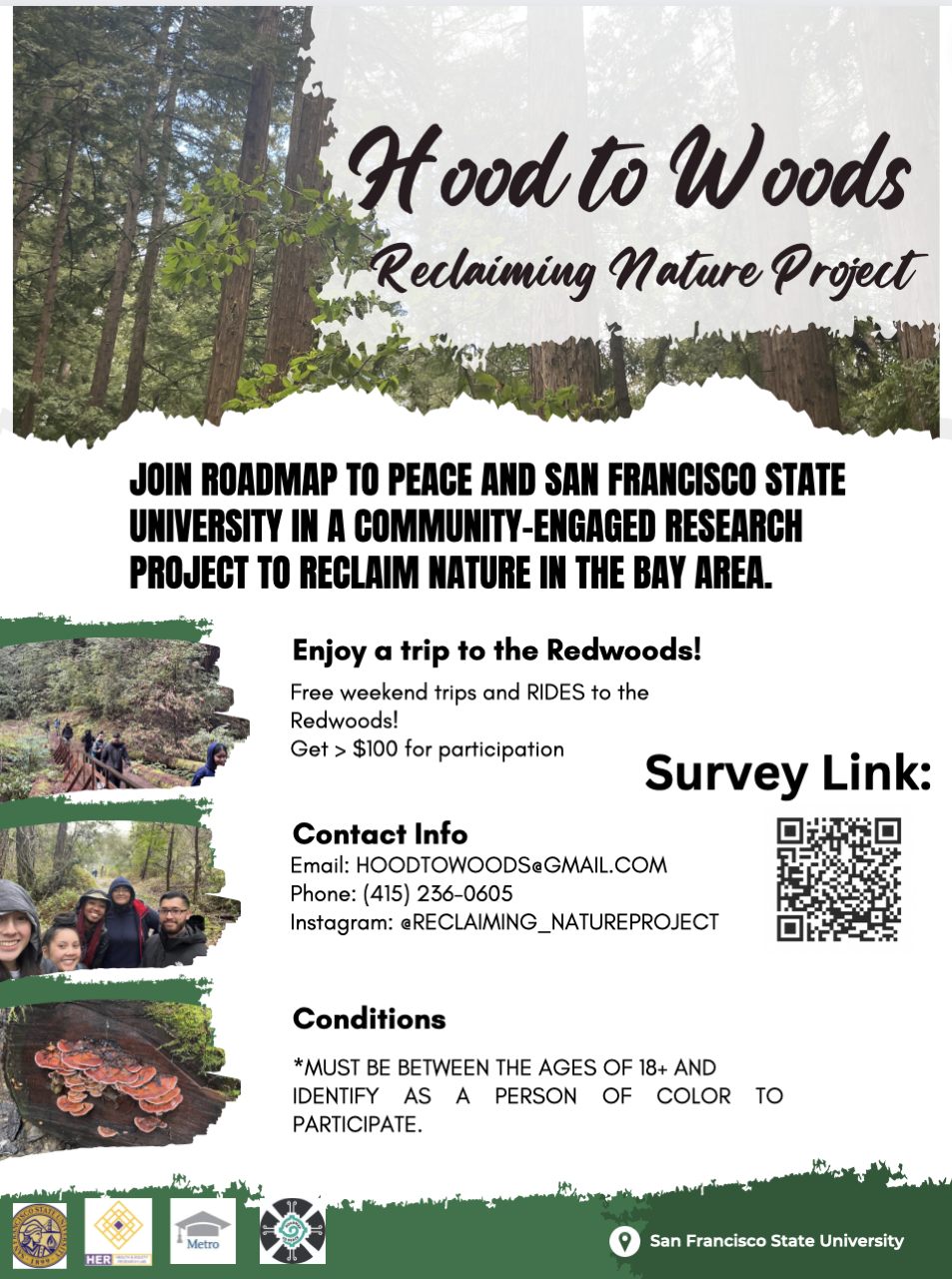"Examining Anti-Racist Healing in Nature to Protect Telomeres of Transitional Age BIOPOC for Health Equity" (Reclaiming Nature) is a project supported by the NIH’s Common Fund’s Transformative Research to Address Health Disparities and Advance Health Equity initiative, a new program supporting highly innovative, translational research projects that aims to prevent, reduce or eliminate health disparities and advance health equity. Through a transdisciplinary approach, researchers will collaborate with transitional-age Black, Latinx, Pilipinx, and Pacific Islander youth to document their experiences and biological metrics. NIH Award #: U01OD033243
Why Reclaiming Nature is important?
In times of duress, many individuals turn to nature for solace. It is a classic form of self-care that has become increasingly important during the pandemic. However, this seemingly simple intervention is not always accessible to Black, Indigenous, and people of color (BIPOC) communities — communities that are already challenged by well-documented health inequities.
Although nature is an ancestral healing place for many communities, these spaces can be unwelcoming, unsafe, or triggering for people of color. By collaborating with community members, Tate and her colleagues hope to help reclaim natural spaces and mitigate growing health disparities. This study builds upon an earlier project that was co-led by SF State Professor of Biology Leticia Márquez-Magaña that reported the health benefits of walking for Latinx communities.
Aims
- Examine physical activity in nature as a preventative measure for health disparities using a research approach that is multilevel, transdisciplinary, and community-prioritized
- Collect, analyze, and disseminate information about what anti-racist green spaces look like to effect intersectoral changes
Mission Statement
Reclaiming Nature aims to reduce embodied stress through academic-community partnerships to reclaim nature for healing. The benefits of physical activity in nature are well-documented in some communities but remain significantly understudied in poor communities of color that are heavily burdened by health disparities. These disparities are linked to acute and chronic stress that give rise to higher rates of hypertension, diabetes, cardiovascular and kidney diseases, as well as greater death from COVID-19. In effect, the excess stress found in poor communities of color is embodied in the bodies and minds of community members, and we aim to reduce it through multi-level efforts (e.g., individual, interpersonal, and community-level). These efforts are enabled by a strong partnership between insider science trainees and researchers who come from the communities we aim to serve, nature outreach specialists, and local community leaders.
Programming Paused Due to Termination in Funding
*This site serves as the original landing site for our research study that has now ended. We are no longer recruiting for any participants. Below is the original flyer to get involved while Hood to Woods was still running.*

Flyer Design: Amber Gadison